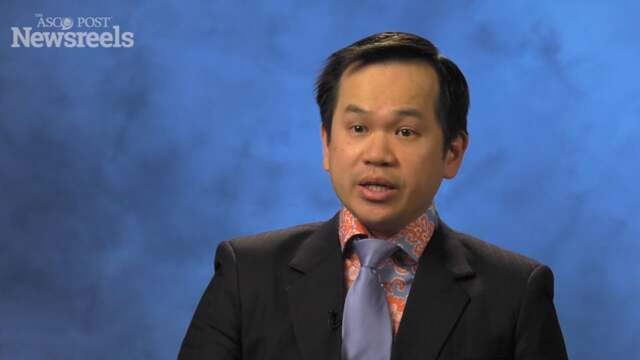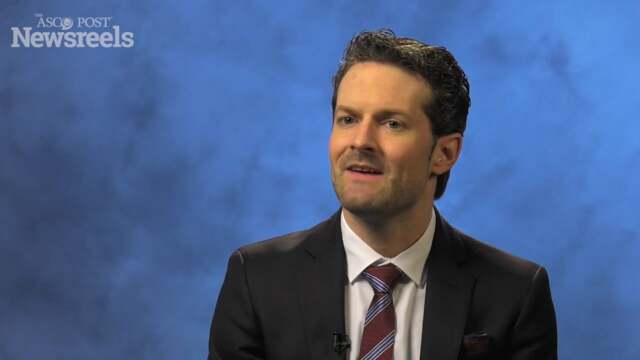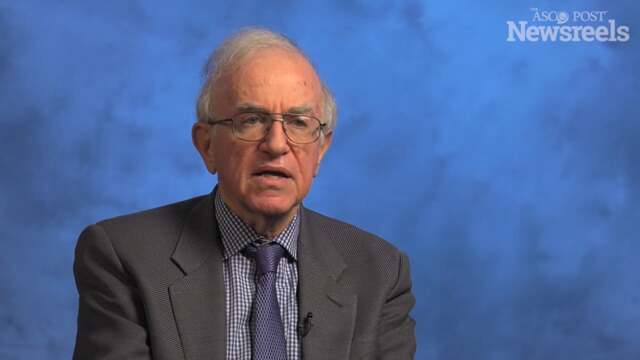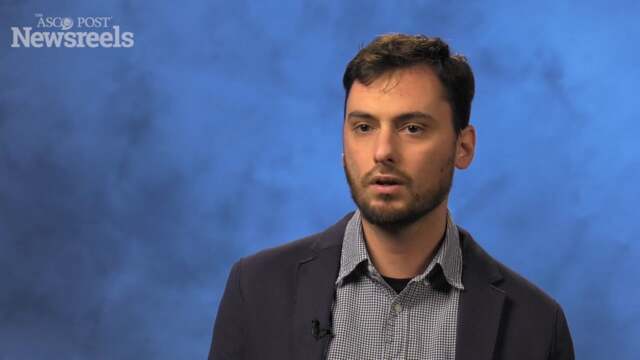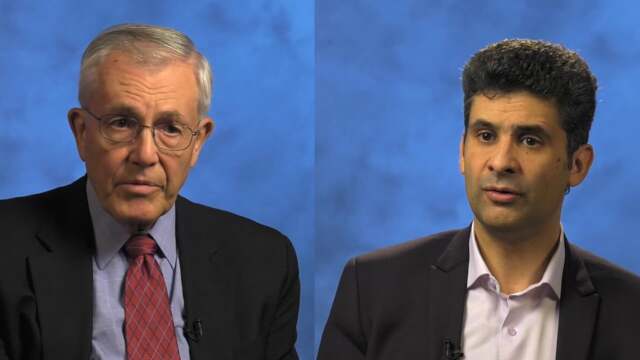Roland Seiler, MD, on Bladder Cancer: Subtypes and Treatment Response (German Language Version) 
2017 Genitourinary Cancers Symposium
Roland Seiler, MD, of the University of British Columbia, discusses in German a way to identify molecular subtypes of muscle-invasive bladder cancer, the varying responses to cisplatin-based neoadjuvant chemotherapy, and which patients show the most benefit. (Abstract 281)
Paul L. Nguyen, MD, of the Dana-Farber Cancer Institute, summarizes a session he co-chaired, which included discussion of Canadian vs U.S. guidelines; ProtecT; genomic and hereditary tests; and imaging to guide active surveillance. (General Session 1)
Roland Seiler, MD, of the University of British Columbia, discusses a way to identify molecular subtypes of muscle-invasive bladder cancer, the varying responses to cisplatin-based neoadjuvant chemotherapy, and which patients show the most benefit. (Abstract 281)
Lawrence H. Einhorn, MD, of the Indiana University Simon Cancer Center, summarizes his keynote lecture on the controversies in management of clinical stage I testicular cancer and the long-term consequences of platinum combination chemotherapy.
Joshua Armenia, PhD, of Memorial Sloan Kettering Cancer Center, discusses new information that is changing the understanding of prostate cancer, including the identification of a new subclass, which represents 21% of cases, and the discovery of recurrently mutated cancer pathways not previously implicated in prostate cancer (Abstract 131).
George J. Bosl, MD, of Memorial Sloan Kettering Cancer Center, and Karim Fizazi, MD, PhD, of Gustave Roussy and the University of Paris Sud, offer the “pro” and “con” viewpoints for treatment intensification in patients with poor-prognosis germ cell tumors with unfavorable marker decline.

